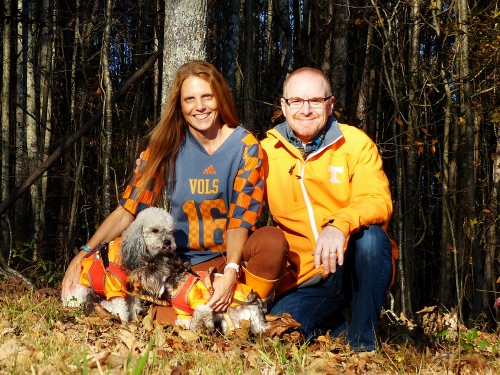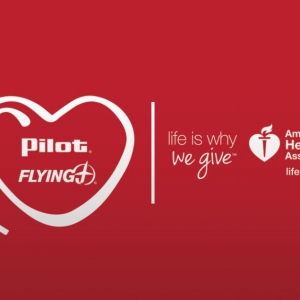Tim Purcell is senior director of strategy at Pilot Flying J, a lifelong distance runner, husband and father. This time last year, he had no indication that he’d also become a survivor, following quadruple bypass heart surgery in July 2017.
It all started when Purcell and his wife, Tami, decided to pursue their dream of owning a horse ranch. Purcell was putting in a lot of extra physical labor to build the ranch, and that’s when the active and physically fit runner noticed slight fatigue, some pain in his wrists and a burning in his lungs like he had just finished a race.
“Our dream probably saved my life,” Purcell said. “Working harder than ever on the ranch brought my subtle symptoms to the surface. While I have some family history of cardiovascular disease, my lifestyle and mild symptoms did not present as a typical patient. But I didn’t ignore them, and I soon learned that my arteries were blocked anywhere from 60-100%.”
Following a successful quadruple bypass, Purcell adopted a vegan diet, cutting his cholesterol from the 250s to 109. He committed fully to the rehabilitation process, and at just 107 days post-surgery, Purcell ran a 5K.
Today, Purcell is running and biking 3 times each week, maintaining his vegan diet, taking statin medication and is back to working on his horse ranch.
 “I’m looking forward to finishing the ranch and our new home, sitting on the porch and watching the horses,” Purcell said. “None of that would be possible without the support of my family, friends and colleagues; the skilled and genuine care of my doctors and nurses; and the research funded by organizations like the American Heart Association that provided the medical advancements that saved my life.” Tim is the American Heart Association’s 2018 Knoxville Heart Ball honoree.
“I’m looking forward to finishing the ranch and our new home, sitting on the porch and watching the horses,” Purcell said. “None of that would be possible without the support of my family, friends and colleagues; the skilled and genuine care of my doctors and nurses; and the research funded by organizations like the American Heart Association that provided the medical advancements that saved my life.” Tim is the American Heart Association’s 2018 Knoxville Heart Ball honoree.
When Tim returned to work, many other Team Members asked, ‘Did you have any symptoms?’ He said, “I know that they are hoping to hear that this can’t happen to them, that as long as they don’t ‘feel bad’ that everything will be fine.
But I would ask them to not rely on hope and to make changes today that help them become healthier and protect their heart.”
Tim shared seven things he learned throughout his surgery and recovery:
• Don’t hope: If something doesn’t feel right, it’s probably not
• Eat better, eat less: You will feel better, look better, stop snoring & have more energy
• Do your part: Rehab is for you. It’s not a weapon the nurses use to torture you
• Pick an attitude: decide that you can and will heal, then go do it
• Celebrate more: Appreciate accomplishments, acknowledge milestones
• Take time to heal: Eager to get back to the things you used to do, but …
• Life REALLY is short: Worry less, love more – and be thankful
“Tim is an inspiration to our entire team,” Pilot Flying J President Ken Parent said. “His story was a key factor in our decision to support the American Heart Association’s (AHA) ‘Life Is Why We GiveTM’ fundraising campaign. Throughout American Heart Month in February, we are partnering with our guests and team members across the country to raise funds to help build healthier lives free of cardiovascular disease and stroke. We hope for there to be many more survivors like Tim.”
Pilot Flying J invites guests to visit any travel center or convenience store location during the month of February to support the campaign through in-store fundraising initiatives including special AHA red 16-ounce hot beverage cups, paper heart icons, and purchase round-up to the nearest whole dollar. For more information on how to contribute, visit www.pilotflyingj.com/life-is-why.

